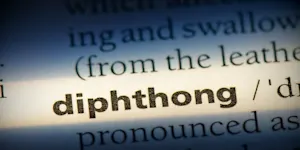What Makes This Word Tick
"Execrate" is one of those wonderfully expressive words that lets you know exactly how someone feels—with intensity! It's all about expressing loathing or detesting something vehemently. An excellent word for those moments when "dislike" just doesn't quite capture the depth of your sentiments.
If Execrate Were a Person…
Imagine an old-timey schoolmaster waving his stick, scowling at the unruly students. Or perhaps a grumpy neighbor peering over the fence, expressing disdain for the neighborhood’s excessive noise. Both thoroughly dramatic yet unmistakably clear about their displeasure.
How This Word Has Changed Over Time
While the core of "execrate" has always been about expressing disgust, it has largely stayed within literary and formal contexts over time. This means, unlike some words, it hasn’t really made the leap into everyday casual conversation. It’s reserved for when you’re being particularly specific—or theatrical—about your feelings.
Old Sayings and Proverbs That Use Execrate
True to its formal nature, "execrate" doesn’t frequent the world of proverbs and folksy sayings. However, you might think of it whenever hearing detestation that's not minced with euphemisms. It embodies the root feeling behind many sayings about aversion.
Surprising Facts About Execrate
"Execrate" comes from the Latin "execrari," which combines "ex" (out) and "sacrare" (to consecrate, or make sacred). In a way, when you execrate something, you’re seeking to un-bless it, as it were. Talk about the power of words!
Out and About With This Word
You might encounter "execrate" in a heated political debate, a stern film review, or a particularly scathing op-ed. It's used when the writer or speaker wants to raise the stakes and underline just how thoroughly something is detested.
Pop Culture Moments Where Execrate Was Used
Though not often heard on the silver screen, you might find "execrate" in high-brow dramas or literary adaptations where characters need to express intense disdain without resorting to more colorful language. Picture a British drama where an antagonist sneers this word with aplomb.
The Word in Literature
"Execrate" finds its home in literature among the pages of classic novels, where characters grapple with their loathing. It's the type of word you’d expect from the pen of Dickens or Poe—evoking the full-bodied contempt of Victorian villains and tragic heroes alike.
Moments in History with Execrate
Think back to the Salem witch trials or the French Revolution, where emotions ran high and the word "execrate" would aptly capture the public's sentiment against what they perceived as the greatest evils. It was all about the fervor of emotion and righteousness.
This Word Around the World
Though “execrate” itself doesn’t translate directly into many languages, the sentiment is universal. Many cultures have their formal equivalents for expressing strong detestation, though often through phrases rather than a single word.
Where Does It Come From?
"Execrate" roots itself firmly in Latin, echoing back to "execrari," which has been passed down through time without significant alteration, keeping its disdainful essence front and center all along.
How People Misuse This Word
Sometimes, folks use "execrate" when merely "dislike" or "disapprove" would suffice. It’s a word for when sentiment is intensified to near boiling point. Anything less might be considered an overstatement.
Words It’s Often Confused With
Exaggerate: Often mixed up due to phonetic similarities, but quite different in meaning.
Exonerate: Another word often tripped over, though it means to clear from blame.
Exegetic: Pertaining to interpretation, not expressions of disdain.
Additional Synonyms and Antonyms
Synonyms: Abhor, detest, loathe.
Antonyms: Bless, praise, admire.
Want to Try It Out in a Sentence?
"I cannot help but execrate the dishonesty that has seeped into our political discourse."
Feel the weight behind that sentiment? Not just dislike—full-on execration!
















